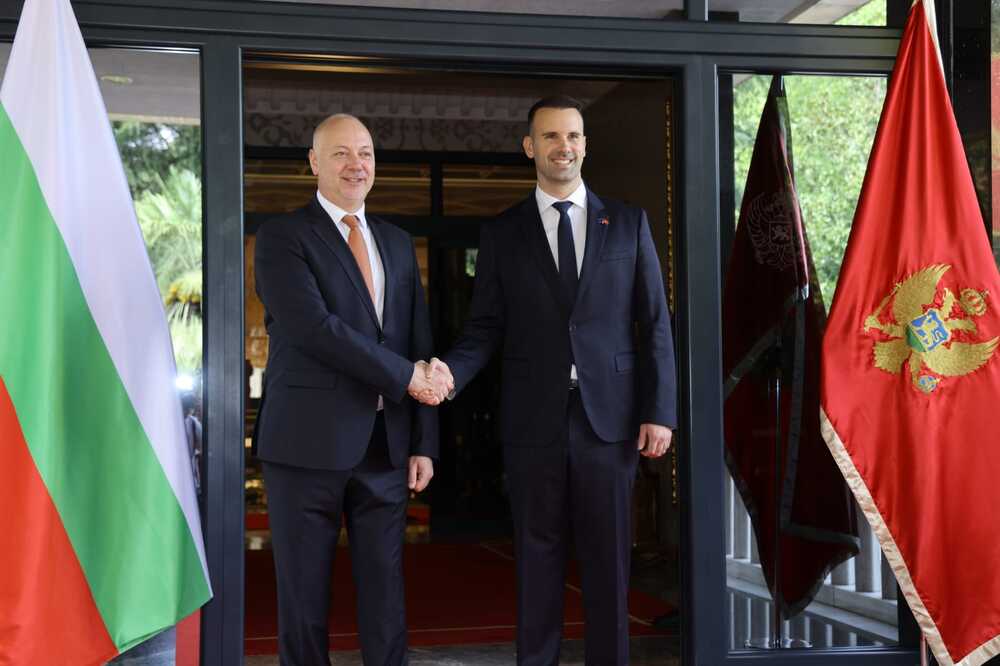site.btaUPDATED Bulgaria Staunchly Supports Montenegro's EU Aspirations - PM Zhelayzkov


Speaking in Podgorica following the signing of bilateral cooperation agreements, Bulgarian Prime Minister Rosen Zhelyazkov reaffirmed Bulgaria’s unwavering support for Montenegro’s European future. “Since Montenegro declared independence, Bulgaria has been a staunch supporter of this friendly country’s EU aspirations. This obliges us to deepen our bilateral relations, especially our economic ties, which depends on improving connectivity,” Zhelyazkov said.
The Bulgarian Prime Minister arrived on a two-day visit to Montenegro earlier on Monday.
Zhelyazkov expressed hope that Montenegro would become the 28th EU Member State, “deservingly” filling the seat left by the United Kingdom “with its own contributions to the Union.”
Montenegro was granted EU candidate status in 2010, and accession negotiations started in 2012.
“Perhaps the most gratifying fact is that there is no other country with which Bulgaria enjoys such friendly relations and with which we have no unresolved bilateral issues,” Zhelyazkov added.
He said that as NATO allies, Bulgaria and Montenegro share a common vision on geopolitical, European, and regional issues. “As a country that we hope will complete the EU accession process by the end of 2026,” Montenegro has met all requirements of the negotiating chapters and is advancing based on its own merits, he noted.
“We have always supported countries in the enlargement process that prove merit is a functioning principle, one that is far more effective for societal development than decisions made for political reasons. Montenegro is a prime example of this. We look forward to welcoming it into the EU as soon as possible, as we share the same values and a common understanding of the challenges and their solutions,” Zhelyazkov said.
He said that enhanced connectivity can be achieved not only through EU pre-accession funds but also by applying lessons learned from public-private partnerships and the challenges Montenegro faces on its EU path.
"I hope this visit is not just political but one that will bring practical benefits," Zhelyazkov said. He described air connectivity as the easiest yet most underutilized area of cooperation. The main obstacle is the lack of sufficient business interest and regular flights to make routes sustainable for carriers, Zhelyazkov said, adding that the relevant authorities in both countries will be urged to explore ways to promote air travel through better tariff policies, lower operating costs, and other forms of support.
Zhelyazkov said that the most realistic progress can be achieved by developing packages including transport, tourism, and connectivity, and involving third countries. In the Balkans, flights can be operated under what is known as freedoms of the air, which opens up opportunities, he said. Zhelyazkov added that they would work to involve carriers from Turkiye, Armenia, Georgia, and possibly Greece and Romania to create a solid product that would stimulate seasonal traffic and attract longer-distance flights.
He also highlighted the importance of building a common digital and energy market. There is an underwater data cable between Italy and Montenegro that is still not in use. This is a great opportunity for data transmission connectivity, Zhelyazkov noted. This is the future of connectivity and of the digital economy, he said. “We will work seriously in this direction," the Prime Minister added. He also spoke of the need to build energy infrastructure, which would allow for the creation of a common energy market.
/IV/
news.modal.header
news.modal.text